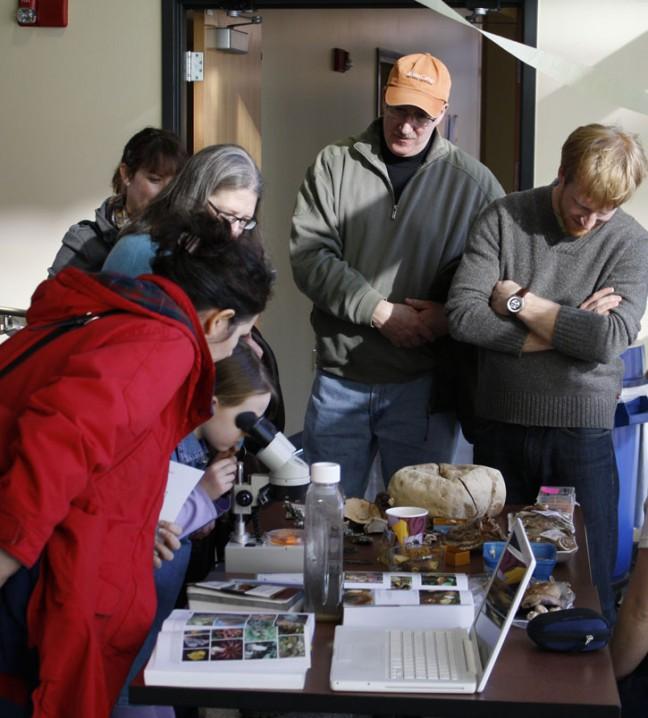The University of Wisconsin held their annual birthday bash in honor of evolutionary biologist, Charles Darwin from Feb. 8 to Feb. 10. The celebration included two seminars highlighting evolutionary research updates and concluded with a community outreach and education day.
Darwin is known best for his theory of evolution by natural selection, and his contributions to the foundation of modern evolutionary biology.
UW anthropology professor John Hawks kicked off the three-day celebration by partnering with Wednesday Nite @ the Lab to present “Finding Other Ancient Minds Across the Evolutionary Tree.” Hawks shared his experience and discoveries exploring fossil fragments of an archaic extinct human species, Homo Naledi, in the Rising Star cave system in South Africa.
This past year while excavating in one of the caves, his team found abundant evidence of charcoal and fire. Hawks said in exploring the cave system, they have realized that beyond being a fossil space, it is also a cultural space that shows how hominins interacted with each other and their surroundings.
“Darwin made many contributions to biology,” Hawks said. “To me the most central and important one is the idea that species are connected by a tree. The innovation of the tree gives us the power to understand ancestors by studying their many descendants.”
Hawks said scientists are now coming to understand that the evolution of brain size was not as powerful a factor in behavioral complexity as once thought.
Associate professor of psychology at Vanderbilt University Suzana Herculano-Houzel gave her talk the following day about how brain diversity arose during evolution. Her presentation, “More energy, more neurons, more time: Human evolution as a story of self-reinforcing opportunities,” explored how bigger does not necessarily mean better when it comes to brain size.
Herculano-Houzel said humans are outliers when looking at the brain and body size ratio across species. Human’s brains are larger than the expected ratio for their body size when compared against other animals. In the past, this trend led scientists to believe that animals with bigger brains have more intelligence because there are more neurons.
Herculano-Houzel raised the question of how human brains have come to have the capabilities it does if it is not the largest. She explained that neurons are basic processing units that help build brains, and while they require energy to function, biological variation allowed energy constraints to become flexible when our ancestors developed cooking technologies. This allowed them to spend less time collecting food and instead provided humans with more time to live, socialize and progress as a culture.
The festivities concluded with a community celebration on the third day which included an art contest and science activities for families. The art exhibition allowed participants to show appreciation for Darwin, evolution, ecology and biodiversity in any preferred medium.
UW Ph.D. student and chair of UW Darwin Day events Jassim Al-Oboudi hopes others will be inspired to have their own Darwin Day celebrations going forward.


